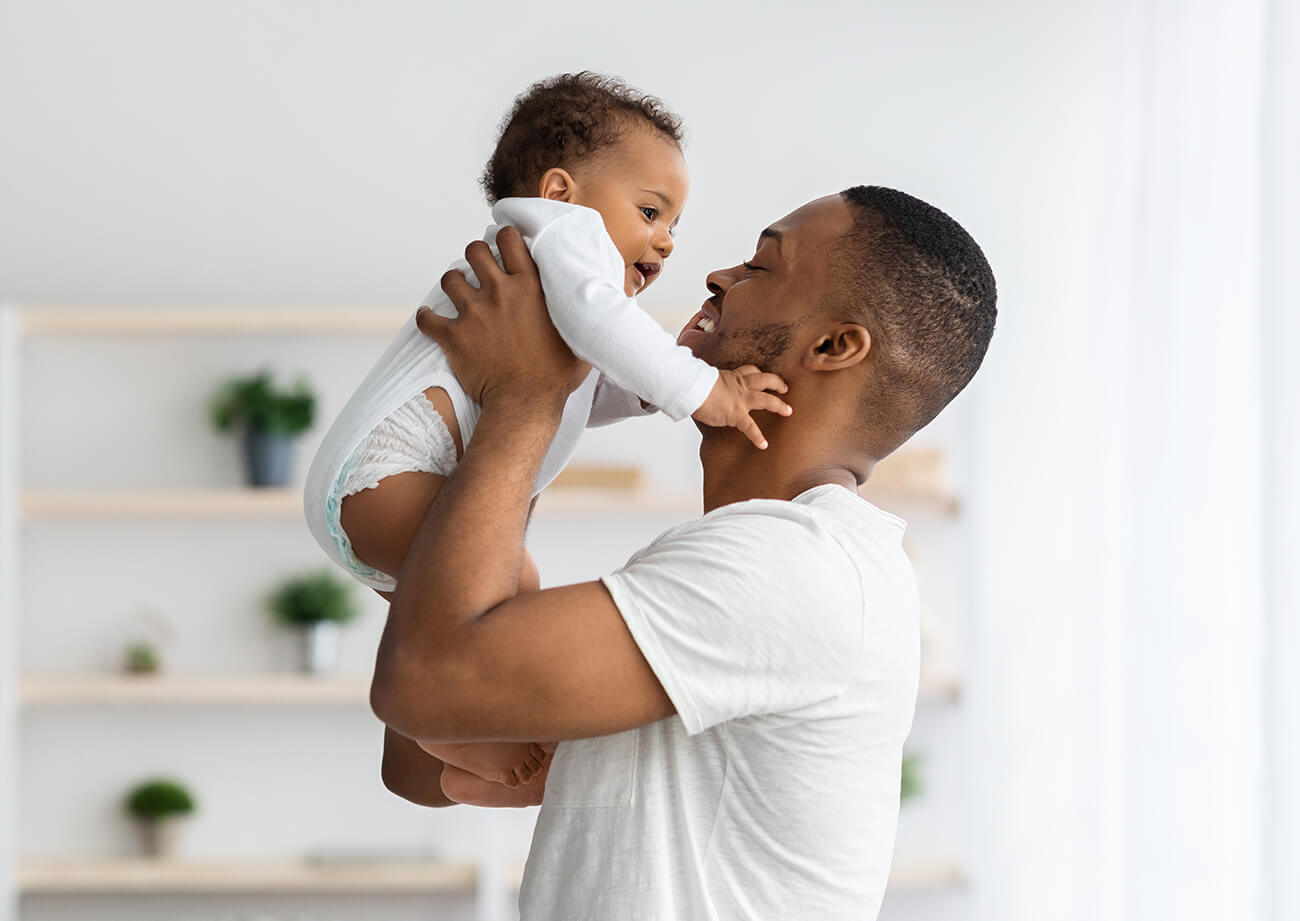Why Couples Should Have ‘The Talk’ Before Kids
Preparing for the arrival of your first child can be exciting and overwhelming. For couples, the conversations during pregnancy often focus on preparing for labor and delivery. But once that child comes home and becomes a part of your everyday life, many couples notice their lives changing in unexpected ways.

By Sam Goodman
Co-founder of Dadditude and Trusted Parenting Network Member
These changes don’t have to be unexpected.
That’s why it’s important to proactively talk through a few of these potential changes. Because, as it turns out, they’re actually quite common.
What kinds of challenges do new parents experience? Most of them stem from how the relationship dynamic has changed. Perhaps it’s about who takes on what roles and responsibilities. Or what kind of parenting strategies you want to use. Or the amount of attention you are able to dedicate to your partner. It can also be about day-to-day communication.
That’s why having “the talk” – or even several talks – before the baby arrives can help set you and your partner up for better parenting success.
Sam Goodman
Co-founder of Dadditude and Trusted Parenting Network Member
Dadditude is a parenting coaching platform created by dads specifically for dads, with the support of parenting professionals, therapists and academic researchers. The community is vibrant, caring and supportive of each other’s circumstances and challenges. Dads can ask questions to other dads, post comments and tips, or read any of the 50+ guides on self-care & parenting, written for dads. Download the app on iOS or Android devices.
IF YOU ONLY REMEMBER 3 THINGS:
- It’s impossible to pre-plan for every contingency a new baby will present. Focus on how you’ll resolve conflict, what your priorities as a new family unit will be, and any worries or concerns you want to address before the baby comes.
- Sleep (or lack thereof) changes everything. Discuss how to make catching up on sleep a priority (especially difficult if one or both of you will be working), and have a conversation that acknowledges it’s much easier to lose your temper, abandon your best-laid plans, and feel generally like a shell of yourself when you’re not getting enough sleep.
- Overall, being a responsive, caregiving partner corresponds with being a better parent.1 One more reason not to drop the ball with your partner just because you have a baby!
ACTION STEPS:
1. Make the pregnancy a collaborative experience.
This will naturally facilitate communication as one partner understands what the other is experiencing, and what will be required of them during the birth and postpartum periods. Research has also shown that when dads participate in this process, they become more secure and confident in their new roles after their child arrives.2
2. Make a list, talk about it twice (or thrice, or…).
It’s easy to say you’re going to have a plan. Putting it in writing makes it more concrete. It will also help you name your priorities, so be honest. Are you worried about what will happen to your sex life? Does the idea of caring for an infant alone while your partner exercises give you crippling anxiety? Spending an hour writing down what matters to you and sharing it with your partner could save you days and nights of rumination later.


3. Prioritize immediate postpartum practicality conversations.
Trust us when we say talking about who’s getting breakfast, who’s changing the diapers at 3 a.m., and so on, are FAR easier conversations to have now than in the middle of the night when you’re both irritated and sleep-deprived. A few starter-kit conversation suggestions include:
• What will the division of childcare be?
Are you both going to be on leave at the same time? If so, will you divide up days of care, duties, or some combo?
• What outside help do you want/need?
What role might extended family members play in helping with child care? Is a nanny in the cards? Do you want to look into daycares, and if so, at what age?
• What will the feeding situation look like?
Will you exclusively breastfeed, with no bottles? This frees up your time, Dad, to pick up the slack elsewhere. Will you use formula, or will you use both formula and breast milk? Will your partner pump milk for use in a bottle? Getting involved in the feeding process as a father can help strengthen the bond between you and your infant. 3
• What about sleep?
The inconsistency in sleep during those first few months can be one of the toughest hurdles for parents. Figure out how you can help each other during the night. For example: If one partner is breastfeeding, could the other help with changing or rocking the baby? If there are bottles involved, can you each take “shifts”? Having a plan in place for the evenings is always a good idea – most people can’t think straight when they’re woken up in the middle of the night.
• How will you make time for yourselves?
After your first child arrives, your schedule will naturally be busier. Many new parents start to feel guilty about leaving the home to spend time alone or socialize with friends. But it’s important that each partner supports the other in finding ways of enjoying old hobbies and activities. It helps you recharge and be a better parent (and partner) when you’re at home.
4. Follow up with long-term considerations (but don’t stress if you don’t have everything covered).
Discussions about religion, schooling, work-life-childcare balance, discipline, and so on will have less immediate importance compared with who’s going to wake up with the baby in the middle of the night. But these considerations are important, and they will help you and your partner share values and thoughts about the future, which will in turn improve your communication in the long run.
5. Carve out time for each other.
Connecting with your partner isn’t just good for your relationship with each other; it’s good for your relationship with your child. Have honest, frank conversations about how you’ll make time for each other, whether that means a regular date night or one-on-one activities. It may feel like your schedule is too busy to make these moments happen, but making them a priority is almost always an idea you won’t regret.


Becoming a parent will likely be one of the biggest changes you and your partner will ever experience. While expecting your child should be a joyful time, it’s also important to have some of these tougher conversations before they have the potential to cause unnecessary friction or frustration. When you have “the talk” early and often – you’re giving yourself, your partner, and your growing family a better chance to succeed.
Sam Goodman
Co-founder of Dadditude and Trusted Parenting Network Member
Dadditude is a parenting coaching platform created by dads specifically for dads, with the support of parenting professionals, therapists and academic researchers. The community is vibrant, caring and supportive of each other’s circumstances and challenges. Dads can ask questions to other dads, post comments and tips, or read any of the 50+ guides on self-care & parenting, written for dads. Download the app on iOS or Android devices.
Resources like these are provided by American SPCC – a national nonprofit dedicated to building positive childhoods for all children by empowering parents and caregivers with research-backed education and support.
This work is made possible by passionate donors and community advocates. Learn how you can get involved and support the mission here.
Previous Section

